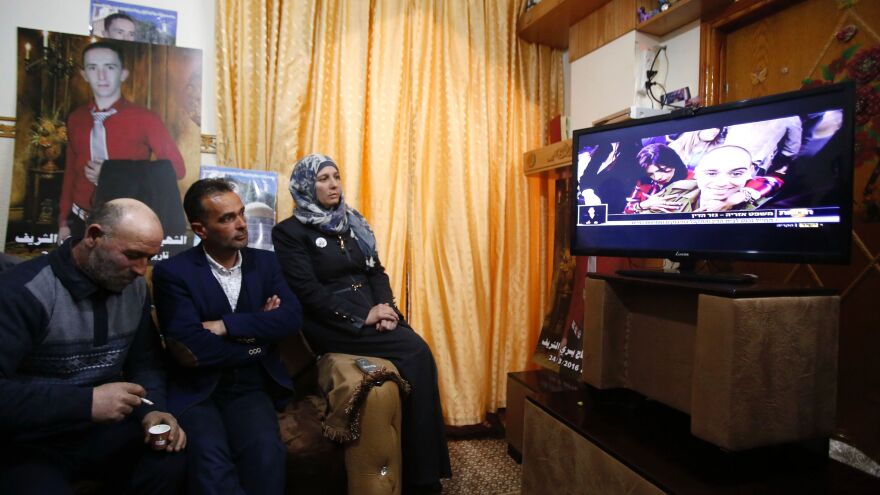More than a month after an Israeli military court found Sgt. Elor Azaria guilty of manslaughter, the soldier has been ordered to serve an 18-month prison sentence. Azaria, who worked as an army medic, shot and killed Abdel Fattah al-Sharif, a Palestinian assailant who was already incapacitated.
The 21-year-old soldier's defense team has said it plans to appeal any sentence that includes jail time. Since last month's verdict, many on Israel's right wing have called for Azaria to be pardoned — something that Prime Minister Benjamin Netanyahu has said he supports. A potential pardon would have to come from Israel's president.
Video of the shooting, which took place in the occupied West Bank in March 2016, sparked strong and disparate reactions in Israel and beyond, fueling debate over the proper use of force and rules of engagement.
Here's how NPR's Joanna Kakissis described the videotaped events in her report from Jerusalem last month:
"Al-Sharif had been shot and wounded after stabbing an Israeli soldier. Eleven minutes later, Azaria shot the motionless Al-Sharif in the head.
"A human rights activist filmed the killing. The video went viral.
"Many Israelis say Azaria was justified because he feared Al-Sharif might have been wearing an explosive belt. But Azaria's superior officers say his actions contradict the army's ethical standards."
The crime of manslaughter could have exposed Azaria to a 20-year prison term; prosecutors had sought a sentence of 3-5 years. In addition to the prison sentence, the military court demoted Azaria to the rank of private.
Copyright 2021 NPR. To see more, visit https://www.npr.org.


